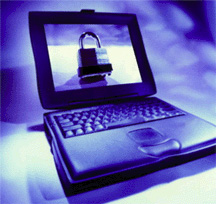Vaporous Voids: Questions Remain About Duqu 2.0 Malware
 The use of stolen Foxconn digital certificates in Duqu 2.0 gnaws at me, but I can’t put my finger on what exactly disturbs me. As detailed as reporting has been, there’s not enough information about this malware’s creation. Nor is there enough detail about its targeting of Kaspersky Lab and the P5+1 talks with Iran.
The use of stolen Foxconn digital certificates in Duqu 2.0 gnaws at me, but I can’t put my finger on what exactly disturbs me. As detailed as reporting has been, there’s not enough information about this malware’s creation. Nor is there enough detail about its targeting of Kaspersky Lab and the P5+1 talks with Iran.
Kaspersky Lab carefully managed release of Duqu 2.0 news — from information security firm’s initial post and an op-ed, through the first wave of media reports. There’s surely information withheld from the public, about which no other entities know besides Kaspersky Lab and the hackers.
Is it withheld information that nags, leaving vaporous voids in the story’s context? Possibly.
But there are other puzzle pieces floating around without a home, parts that fit into a multi-dimensional image. They may fit into this story if enough information emerges.
Putting aside how much Duqu 2.0 hurts trust in certificates, how did hackers steal any from Foxconn? Did the hackers break into Foxconn’s network? Did they intercept communications to/from Foxconn? Did they hack another certificate authority?
If they broke into Foxconn, did they use the same approach the NSA used to hack Syria — with success this time? You may recall the NSA try to hack Syria’s communications in 2012, by inserting an exploit into a router. But in doing so, the NSA bricked the router. Because the device was DOA, the NSA could not undo its work and left evidence of hacking behind. The router’s crash took out Syria’s internet. Rapid recovery of service preoccupied the Syrians so much that they didn’t investigate the cause of the crash.
The NSA was ready to deny the operation, though, should the Syrians discover the hack:
…Back at TAO’s operations center, the tension was broken with a joke that contained more than a little truth: “If we get caught, we can always point the finger at Israel.”
Did the NSA’s attempted hack of Syria in 2012 provide direction along with added incentive for Duqu 2.0? The failed Syria hack demonstrated evidence must disappear with loss of power should an attempt crash a device — but the malware must have adequate persistence in targeted network. NSA’s readiness to blame Israel for the failed Syria hack may also have encouraged a fuck-you approach to hacking the P5+1 Iran talks. Read more →
